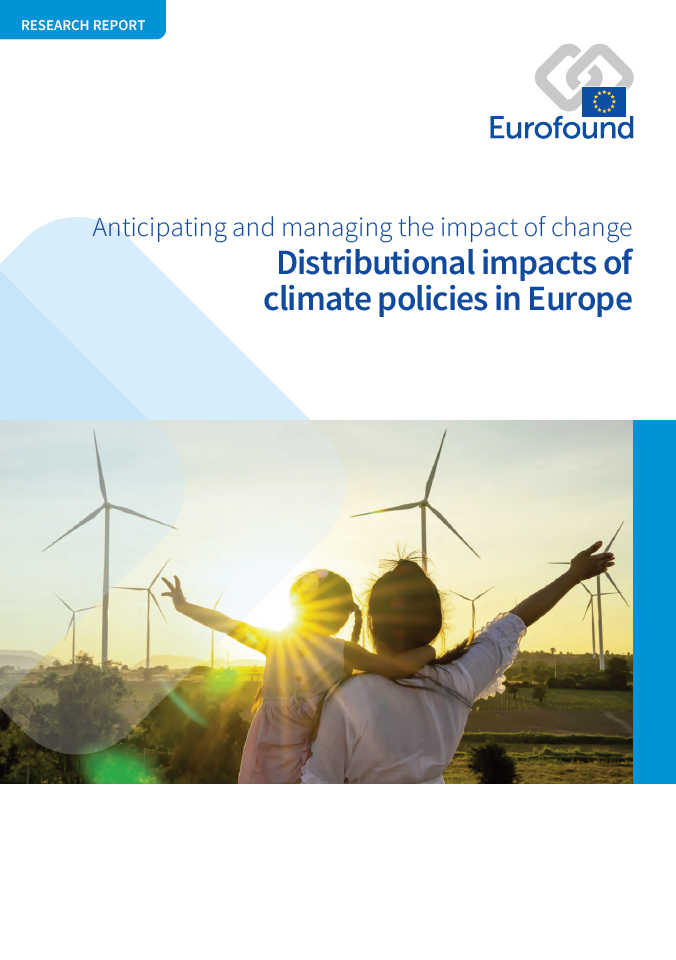
С Европейския зелен пакт ЕС задейства набор от политики и мерки, насочени към предотвратяване и облекчаване на последиците от изменението на климата. Основната цел е да се пристъпи към преход към неутрална по отношение на климата икономика. Последиците от разпределението на тези така необходими политики в областта на климата обаче могат да са нежелани по отношение на отделни физически лица и предприятия. Освен предполагаемите последици от тях, последиците от някои мерки, като например данъците върху емисиите на въглероден диоксид, могат да са регресивни и да оказват отрицателно въздействие върху хората с по-ниски нива на доходи, и следователно тяхната приемливост да се намалява. Въз основа на най-скорошния опит на национално равнище, в настоящия доклад се определят онези политики в областта на климата, при които последиците от разпределението са значителни, и в него се проучва как тези проблеми се преодоляват в различните държави членки. В допълнение в доклада се определят и описват основните въпроси и участници в текущия публичен дебат относно социално-икономическите въздействия на политиките в областта на климата.
Key findings
Energy or fuel poverty is recognised as a severe problem in many Member States and this is mainly addressed through financial support. Alternative funding models should be explored, such as grants for housing associations and local authorities to deliver energy-efficient upgrades to buildings, community municipal bonds and green equity schemes.
When designing policy measures aimed at achieving the goal of climate-neutral policies, Member States must take a cross-departmental approach to account for the different socioeconomic effects, as workers, population groups, industries and regions are affected differently.
The management of a just transition is supported by EU and national funds, which provide opportunities for adopting a comprehensive and systemic approach rather than single-point solutions. Drawing up a plan for the future of industries and workers offers prospects to the regional and national economy.
The capacity of social dialogue needs to be strengthened to address distributional effects and facilitate a just transition. Evidence shows that the undesired effects of some climate policies, especially as they affect firms and workers in certain sectors and regions, can be addressed by social partners, and solutions can be achieved through social dialogue and joint initiatives.
The Just Transition Platform could be further developed as an EU hub for sharing national experiences on climate measures beyond the Just Transition Mechanism. While also coordinating with other EU-level initiatives with similar goals, the knowledge to be shared could include, for instance, national or regional experiences with carbon taxes, industrial standards, or public investments.
List of tables
- Table 1: Main socioeconomic challenges and considerations in selected national long-term strategies (LTS), mid-2020
- Table 2: Examples of subsidies, tax breaks and exemptions with progressive and regressive effects
- Table 3: Examples of public investments with progressive effects
- Table 4: Information to be provided by respondents on climate policy measures and their distributional effects
- Number of pages
-
72
- Reference nº
-
EF20037
- ISBN
-
978-92-897-2183-7
- Catalogue nº
-
TJ-02-21-743-EN-N
- DOI
-
10.2806/44388
- Permalink
Cite this publication
Eurofound (2021), Distributional impacts of climate policies in Europe, Publications Office of the European Union, Luxembourg